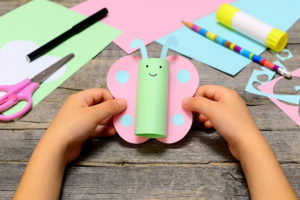3 mindset tools we should teach children
There are so many things that we need to teach children, from mathematics to reading and writing. However, the last few years have also shown us the importance of helping children to build self-esteem and resilience, to support their mental health and well-being. I work with hundreds of children every year in my therapy work, and there are some themes that I commonly see which children struggle with that we can help with. Some, we might even take for granted, but for many children, these factors prevent them from making the steps forward that they want, or limit their beliefs and mindset.

3 mindset tools we should teach children….
#1 – It’s ok to fail
So many children I meet are terrified of failure. I meet children as young as 8 who are scared that if they do not do well at school they will be homeless or let down their families. The reality is, that we learn MORE from failure than we do success. When we fail, if it is supported constructively, we develop vital problem solving skills, resilience, executive thinking and self-esteem. Failing actually teaches us to retrace our steps and review what happened, where we can make changes and the next steps forward – but only if the adults around us help us learn those skills. There will always be losses, job interviews, relationships, university rejections…. the earlier we teach children to take a moment to be disappointed, then, when they are ready review, retrace and learn the lessons from it, the higher their resilience and the better their self-esteem.
#2 – It’s ok to feel sad or neutral
Sometimes, we feel sad, and that is ok. Sadness is a feeling, and all feelings have a role. However, frequently, I meet children (and adults) who perceive that they should feel happy all the time, and that if they do not, then there must be something wrong. A concept that we often explore if that of neutrality and contentment. Sometimes, we may not be laughing, joking and singing, but we may still feel content or neutral, and this is absolutely fine. In fact, the more pressure we put on ourselves to feel ‘happy’ and ‘upbeat’ all the time, or to play the role of the ‘clown’ and keep everyone happy, the more unhappy this often makes us. If we can support children to feel comfortable in all emotions, including sadness, and recognise that they all have a purpose, we can help them to feel more comfortable in expressing themselves.
#3 – Our mindset controls our behaviours
We live in a world where we are surrounded by influence – from Youtube, to instagram, to tik tok. However, with the quick rate that this took over our lives, we haven’t quite caught up with teaching children and young people to harness it. Simply, our mindset, our beliefs and assumptions, control our behaviours. What we surround ourselves with, influences that. That saying that we are ‘the average of the 5 people we spend most time with’ is true of people, content, hobbies, actions….. (*enter category of choice*). When we have a belief about something, it literally controls our behaviours. If we believe that we are ‘useless at maths’, our attention will be reduced, our effort diminished and our enthusiasm affected – so, yes, we will reduce our capacity at maths. If I believe that ‘the more I practice the better I will be at cricket’ then I will attend training, practice, commit – and inevitably improve my performance. Children and adults, often get caught in this trap – if we harness our beliefs and dialogue – we can begin to master our outcomes (this takes practice and sometimes additional support).
Want to learn more?
If you want to learn more about mental health and education you can join our Level 4 training (here) or keep an eye out for our new specialist courses coming soon (here).
© Dandelion Training and Development – All Rights Reserved
Further help
For more articles about mental health visit – ARTICLES
To learn more about child and adolescent mental health visit – COURSES
For resources to support child and adolescent mental health visit –RESOURCES

